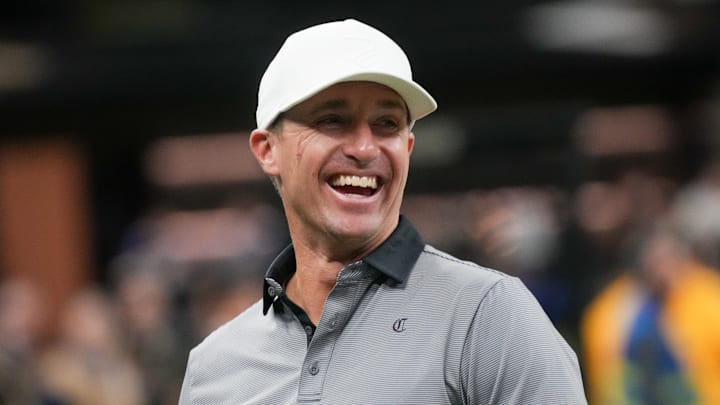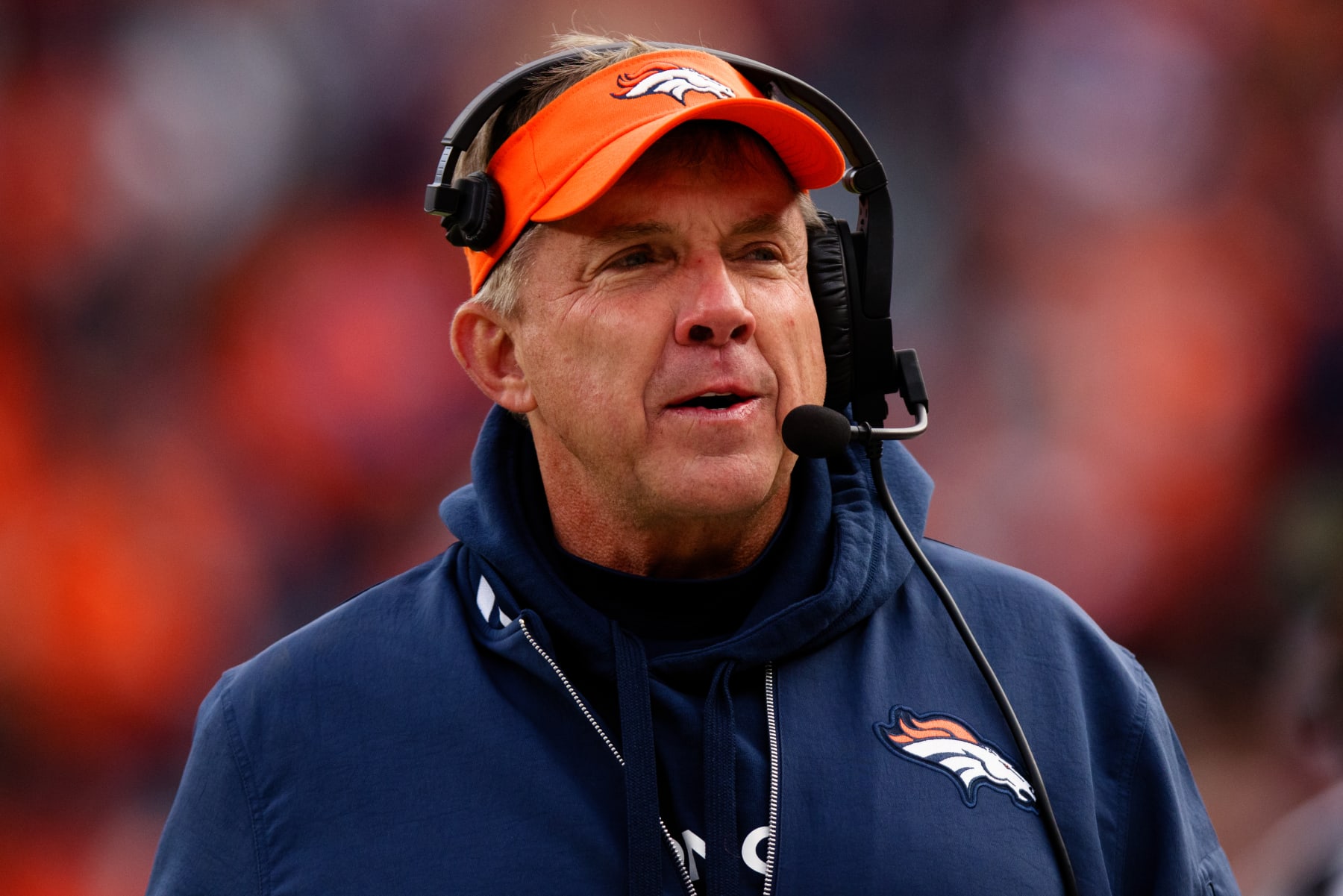Drew Brees' feelings on Tyler Shough are about to become crystal clear
It's hard to make the New Orleans Saints versus Atlanta Falcons any more special than it regularly is, but having Drew Brees in the broadcast booth will do it.

Brees made his return to the broadcast booth a week ago in the matchup between the Packers and Giants. The Saints were on a bye week that week, but FOX didn't waste any time putting him on the first available Saints game.
We've heard Jonathan Vilma call many Saints games in the past, and you can typically hear the former Saints creeping out at times. It'll be interesting to see if Brees falls victim to the same pitfall. Brees is a professional, but sometimes old habits die hard. It may be even harder to fight the urge with who the Saints are playing.
Tyler Shough under more pressure with Drew Brees in the building
Typically, you don't want to put too much pressure on a rookie quarterback making his third career start, but these aren't your typical circumstances. There are three reasons this game holds more weight than a regular rookie's third start, and none of them are bigger than the man in the booth.
Brees will call a Saints game for the first time in his broadcasting career and on the field will be a rookie attempting to be the first franchise quarterback the Saints have seen since Brees. You can't pass the torch when you've been retired almost long enough to be inducted into the Hall of Fame or when there's been three other starting quarterbacks between Brees and Shough, but this has the potential to feel like a torch passing moment.
Calling this game also gives Brees the opportunity to evaluate Shough up close and personal, something Brees will undoubtedly be asked about multiple times throughout the game. Hearing Brees' opinions on Shough's performance will be the most interesting aspect of his commentary.
The greatest player in franchise history watching you and breaking your every move for the world to hear in real time is nothing light. Brees' presence only adds to the potential pressures, but there are other external factors that make this game bigger.
It's Saints versus Falcons. This will be Shough's introduction to the rivalry. Even the Saints fan who's dead set on losing games for draft position will make an exception in this game. in addition to the game being a rivalry, it's Shough's first game in front of the home crowd. Technically, he played in front of the Who Dat Nation when he entered halfway through the Buccaneers game. This is his first time as a starter, though.
Brees' presence adds pressure for Shough to perform. The rivalry ups the stakes in this matchup, and it being Shough's first home game is a memorable moment for his career. Any of these aspects alone would amplify the moment, but all three happening on one day make this far from a routine start for the rookie.
Broncos Coach Erupts After Divisional Win vs. Chiefs: “This Wasn’t Just a Victory — It Was a Statement.”


The aftermath of the Broncos’ dramatic 22‑19 win over the Chiefs took a fiery turn — their head coach delivered one of the most emotionally charged post‑game statements the NFL has seen this season. His words, delivered with raw intensity, weren’t just about one controversial play — they were a full‑scale indictment of what he called a “broken standard” within the league.
The controversy stemmed from a late‑game moment: a game‑winning drive capped by a field goal as time expired that secured the Broncos’ victory. According to the coach, the play crossed every line of sportsmanship the NFL claims to uphold.
“In all my years of coaching, I’ve never seen anything this blatant,” he said. “There’s a difference between going for the ball and going for the man. That wasn’t a football play — that was intent.”
He pointed to what happened immediately after the disputed moment as undeniable evidence: the “words, the smirks, the attitude” from the opposing player. Though he didn’t call names, everyone in the locker room knew exactly who he meant.
But the coach’s frustration went far deeper than one play. He accused the league of inconsistent officiating, claiming certain teams get a protective layer while others — like the Broncos — are left to fight under stricter, uneven enforcement.
“We are tired of these invisible lines,” he continued. “Week after week, dirty hits get brushed off as ‘incidental contact’ while we get punished for everything. You talk about integrity and fairness — what we’re seeing is the opposite.”
By this point his tone had shifted from anger to a bitter disappointment — a disappointment in what he believes football has become.
“If this is what football has become — if your so‑called ‘standards’ are just a polished façade — then you have betrayed this sport,” he declared. “And I will not stand by and watch my team fight — while being forced to endure rules you don’t have the courage to enforce.”
The coach’s comments immediately reverberated across social media, igniting intense debate among fans, analysts and former players. Some praised him for speaking truth to power, calling him “the only coach brave enough to say what others whisper behind closed doors.” Others accused him of deflecting from his team’s mistakes and stirring up unnecessary controversy.
As the NFL prepares to review the film and its officiating, one thing is certain: this moment will not fade quietly. With the Broncos now sitting at 9‑2 and leading the AFC West, the stakes are high — and so is the spotlight on enforcement, fairness and the future direction of this team.




